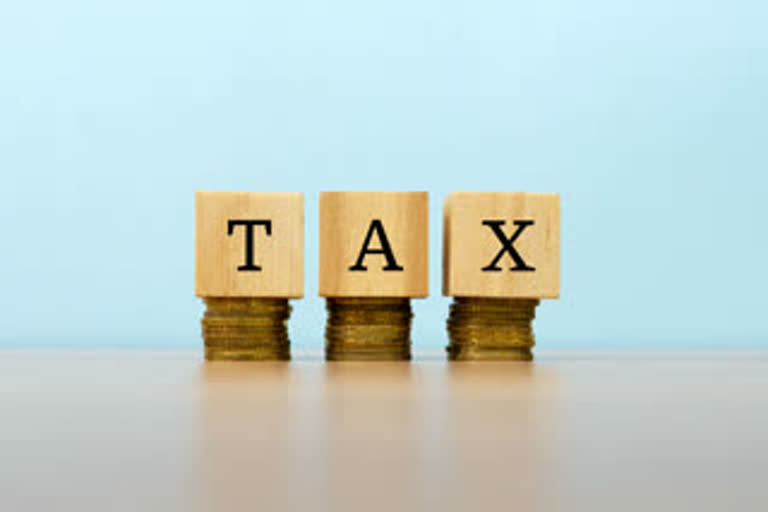New Delhi: UK's Cairn Energy Plc has filed a law suit against the national carrier Air India at a district court in New York.
According to news agency PTI, the law suit was filed on May 14 to seize Government of India’s overseas assets to recover USD 1.7 billion (about Rs 12,600 crore) it has been awarded by international arbitration tribunal for being taxed retroactively.
Quoting sources, the PTI report further said that neither the Centre nor Air India has not received any notice in this regard so far.
"Government/ PSU has not received any such notice. As and when any such notice is received, the government/concerned organisation shall take all necessary steps to defend against any such illegal enforcement action," said the PTI report.
Origin of the issue
Cairn Energy Plc, a Scottish firm, invested in the oil and gas sector in India in 1994 and a decade later, it made a huge oil discovery in Rajasthan.
Cairn Energy Plc transferred all of its India assets, which were until then held by nine subsidiaries in various countries, to the newly-formed Cairn India Inc and listed it on the Bombay Stock Exchange (BSE) in 2006.
Five years after that, the government passed a retroactive tax law and billed Cairn Rs 10,247 crore plus interest and penalty.
According to tax authorities, Cairn Energy had made capital gains worth ₹24,500 crores in the process of this reorganization.
The Government expropriated and liquidated Cairn's remaining shares in the Indian entity, seized dividends and withheld tax refunds to recover a part of the tax demand.
Cairn challenged the move before an arbitration tribunal in The Hague, which in December awarded it USD 1.2 billion (over Rs 8,800 crore) plus costs and interest, which totals USD 1.725 billion (Rs 12,600 crore) as of December 2020.
According to reports, the Centre has challenged this award at a court in the Netherlands.
Current status
Cairn has already taken steps to have the arbitration award recognised in nine major jurisdictions such as the US, UK, France, the Netherlands, Singapore and Canada's Quebec province, where Indian sovereign assets have been identified.
According to PTI, the company has also hired asset-tracing firms to investigate the overseas assets such as Air India's planes, vessels belonging to the Shipping Corporation of India and property owned by state banks that could be seized to recover the amount due.
On May 14, Cairn sued Air India in a New York court stating the airlines is an alter ego of the Government of India.
Meanwhile, officials of the Ministry of Finance held three face-to-face meetings with the then Revenue Secretary Ajay Bhushan Pandey in February and at least one video call with his successor Tarun Bajaj.
Outcomes of these meetings
According to PTI, Cairn had in the meetings offered to forego USD 500 million out of the USD 1.7 billion award and invest that amount in any oil and gas or renewable energy project identified by the Centre after rejecting a government offer to get paid just one-fourth of the award.
It wants the principal of USD 1.2 billion to be paid and is open to re-investing the interest and cost in India.
The Indian government, which appointed one of the three arbitrators on The Hague panel and fully participated in the arbitration proceedings since 2015, wanted Cairn to settle the issue through its now-closed tax dispute resolution scheme, Vivad se Vishwas.The Vivad se Vishwas scheme, which closed on March 31, provided for dropping of tax case if 50 per cent of the demand was paid, which the company rejected, the sources said.
Even if it were to have agreed to the scheme, the Indian government had to refund about Rs 2,500 crore to the British firm, they said.
The value of shares seized and sold, dividend confiscated and tax refund withheld totalled to over Rs 7,600 crore, which was more than 50 per cent of the Rs 10,247 crore principal tax demand raised, the sources added.
Cairn is of the opinion that the unanimous ruling of the tribunal was enforceable against Indian-owned assets in over 160 countries that have signed and ratified the 1958 New York Convention on the Recognition and Enforcement of Foreign Arbitral Awards.
(With PTI Inputs)
Also Read: Cairn sues Air India in US court to enforce $1.7 billion arbitration award
Also Read: Cairn tax dispute case: 'Like Tamil Nadu, GoI should go for out of the court settlement'
Also Read: Voda tax case: India files application in Singapore High Court against arbitration panel verdict



